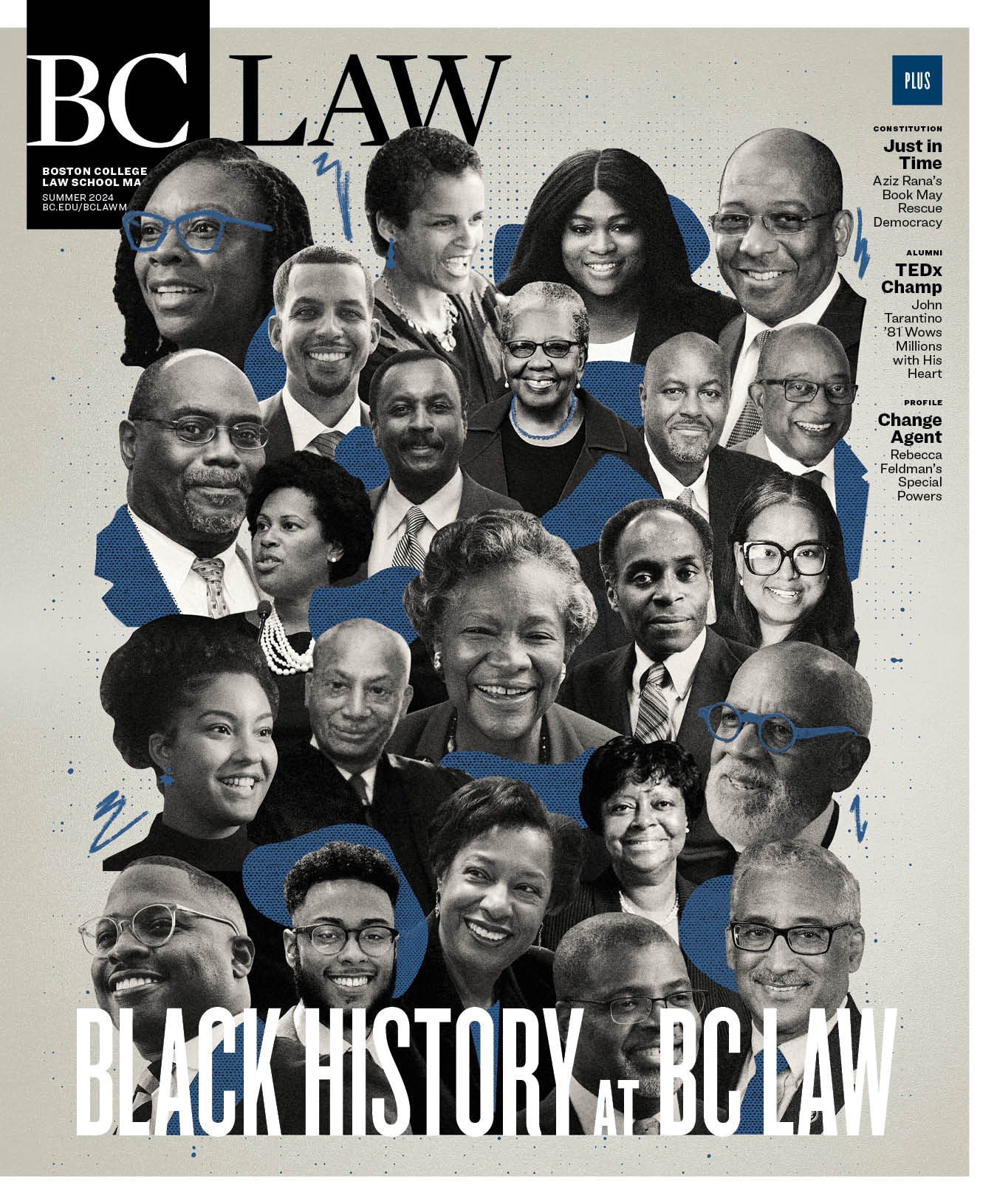Student Snapshot
Birthplace: Venezuela. Education: University of Florida, graduated summa cum laude, majored in Anthropology, minored in Latin American Studies and Educational Studies. Childhood Dream Jobs: Teacher, astronaut, doctor, veterinarian, medical examiner, forensic anthropologist. At BC Law: Executive articles editor, BC Law Review; certified student attorney, Immigration Clinic; and teaching assistant. First Website Visited Every Morning: “Ashamedly, Instagram.” Favorite Time of Day: “Early afternoon, when it’s really hot and the sun is shining.” Dream Dinner Guest:Sonia Sotomayor. Next Step: Northwest Immigrant Rights Project in Washington.
My family immigrated from Venezuela to Miami when I was four and our experience has colored all aspects of my life. I was undocumented until the age of eighteen, so although I was safer and had more opportunities here than those I would have had in Venezuela, there was still a noticeable disparity between my life and my friends’ lives—the most important ones being that I could be deported at any moment and that I wasn’t even sure I would be able to attend college. That instability made me feel that all my hard work at school was potentially for nothing because, at best, I wouldn’t be able to afford college without federal financial aid, and, at worst, because I could be deported at any moment.
During my last semester as an undergrad at the University of Florida where I was studying forensic anthropology, I presented my honors thesis at a biological anthropology conference. Presenting research that I had worked on tirelessly for over a year was the moment I thought I would feel that I had ‘made it.’ Instead, I felt disconnected from helping people—something that has always been important to me. I moved on to my ‘backup plan,’ becoming a lawyer, which would undoubtedly involve helping people.
I worked my 2L summer at the Center for Gender and Refugee Studies with Karen Musalo of the University of California College of the Law, San Francisco. I had been a fan, in part because of her work on In re Kasinga, an immigration case that recognized female genital mutilation as a form of persecution and set the precedent for such claims to be an acceptable basis for asylum. She imparted many substantive lessons, but personally, the greatest I took was that law school is a grueling process, but if you trust the process, you will become qualified enough to work with incredible people, including those you admire.
I am most inspired by average marginalized people who, against all odds, make life work as best as they can. And I dream of the collective liberation of all oppressed people (a difficult dream to achieve, I know).



